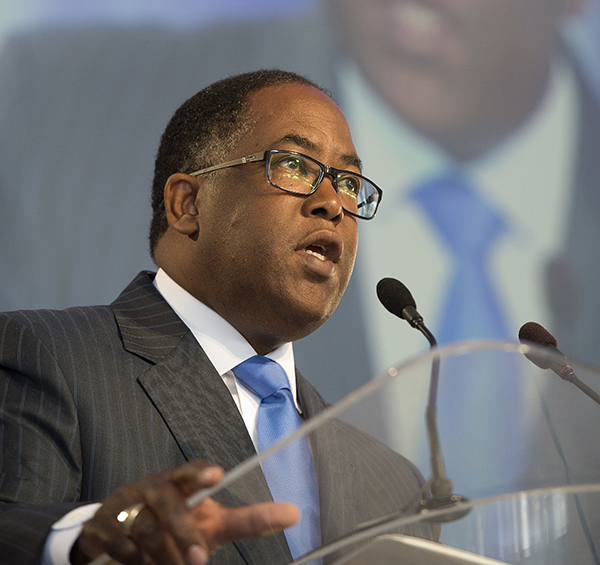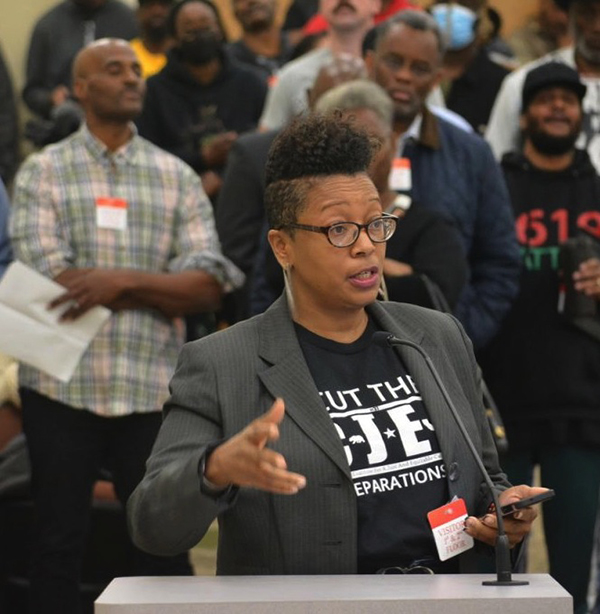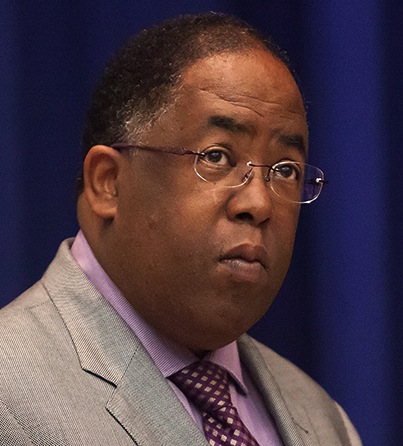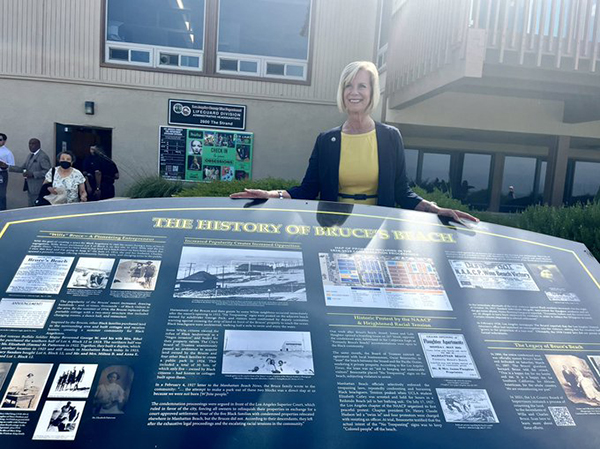Wave Wire Services
LOS ANGELES — Federal prosecutors are asking that longtime Los Angeles politician Mark Ridley-Thomas’ co-defendant — an 84-year-old former dean of USC’s School of Social Work who admitted bribing the ex-city councilman — receive a sentence of probation and home confinement, according to court papers obtained July 11.
Consistent with Marilyn Flynn’s plea agreement, the government is not seeking prison time for the ex-dean, who acknowledged participating in a bribery scheme at the direction of Ridley-Thomas, who was a Los Angeles County supervisor at the time.
Instead, the U.S. Attorney’s Office says Flynn should receive three years probation, including a term of 18 months home confinement, and a fine of $150,000.
Defense attorneys believe that straight probation for a period of two years with no home confinement or monitoring is sufficient.
“However, if the court feels that some period of monitoring is warranted, the defense believes that the recommendation of U.S. Probation — a period of two years’ probation with a six-month period of GPS monitoring with no schedule restrictions — is a more than appropriate sentence given Dr. Flynn’s age and the offense characteristics,” according to the defendant’s sentencing memorandum.
The defense also objects to the government’s recommendation of a $150,000 fine, saying that $100,000 is more than sufficient “given the fact that Dr. Flynn did not personally benefit, and USC did not suffer a monetary loss.”
The final decision is in the hands of U.S. District Judge Dale S. Fischer, who set July 24 for Flynn’s sentencing hearing.
Flynn pleaded guilty last September to one count of bribery, admitting that she agreed to have USC serve as a conduit for a $100,000 payment from Ridley-Thomas’ campaign account to the social work school. Per their agreement, Flynn then arranged for a nearly simultaneous $100,000 payment from USC to the United Ways of California for the benefit of the Policy, Research & Practice Initiative, a new nonprofit initiative led by Ridley-Thomas’ son, who had abruptly resigned from his elected position in the California State Assembly.
To facilitate the scheme, Flynn and Ridley-Thomas concealed from USC that Ridley-Thomas had directed the payment to USC with the intent that the funds be used to support USC’s nearly simultaneous $100,000 payment to United Ways and the Policy, Research & Practice Initiative, Flynn’s plea agreement states.
Immediately after Flynn informed Ridley-Thomas that the USC payment to United Ways and the Policy, Research & Practice Initiative had been “cleared,” the plea agreement states that Ridley-Thomas facilitated a May 10, 2018 meeting between Flynn and a high-level county official to move forward on the county’s approval of the then-dean’s desired expansion of an online mental health services contract that would have improved her school’s ailing finances.
Flynn’s attorneys wrote that the ex-dean was not driven by greed, but by “a desire to help her school, the graduate students in the social work program and those who needed greater access to mental health services. She recognizes and takes responsibility for losing her moral compass along the way.”
In their argument for probation minus home confinement, Flynn’s counsel said the “public shame and humiliation she suffered, the loss of her reputation and a career spanning more than 60 years is sufficient punishment.”
Federal prosecutors say that while the severity of Flynn’s conduct “and the societal harm wrought by public corruption weigh in favor of incarceration,” her “early and fulsome acceptance of responsibility, including her voluntary disclosure of incriminating information previously unknown to the government” weigh in favor of a probationary sentence.
But contrary to the recommendation of defense counsel and the U.S. Probation Office of two years probation, “it is imperative that any probationary sentence be more substantial in length, include a significant term of home confinement, and consist of a sizeable fine,” federal prosecutors wrote.
Ridley-Thomas, 68, faces the prospect of years in prison after being convicted at trial March 30 on single counts of conspiracy, bribery, honest services mail fraud and four counts of honest services wire fraud, stemming from his time serving on the county Board of Supervisors. His sentencing is scheduled for Aug. 21.
Last month, Fischer upheld the convictions, denying Ridley-Thomas’ efforts to have the verdicts vacated.
The former city councilman was accused of steering county contracts toward the USC social work school in exchange for the $100,000 contribution to the organization run by his son.
A juror who spoke after the verdicts were announced said the panel found “dishonesty” in Ridley-Thomas’ actions involving the transfer of $100,000 that traveled from his campaign fund to USC, then to the United Ways of California, and finally to the nonprofit.
Jurors, who reached their verdicts on their fifth day of deliberations in Los Angeles federal court, acquitted the Southland political giant of a dozen fraud counts.
Attorneys for Ridley-Thomas are appealing the conviction.












